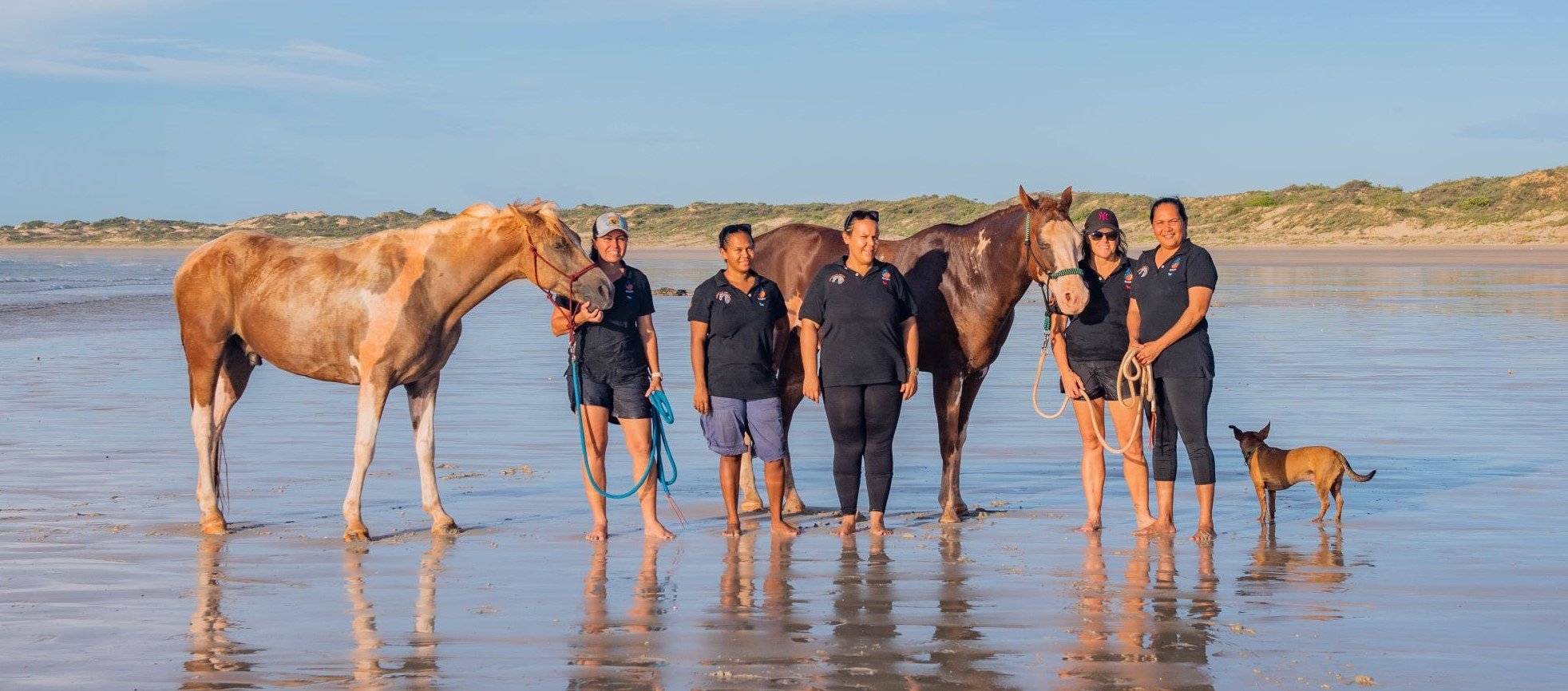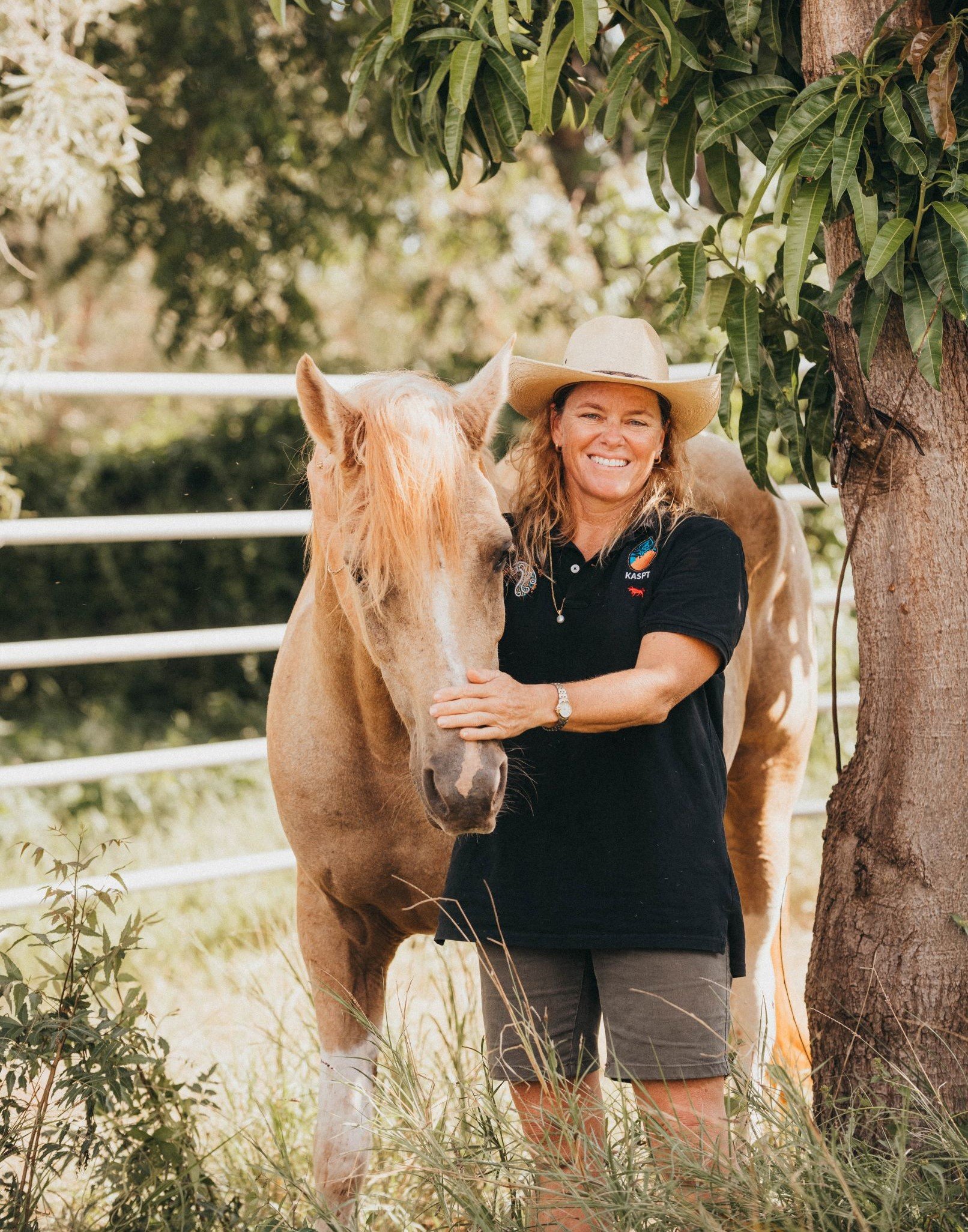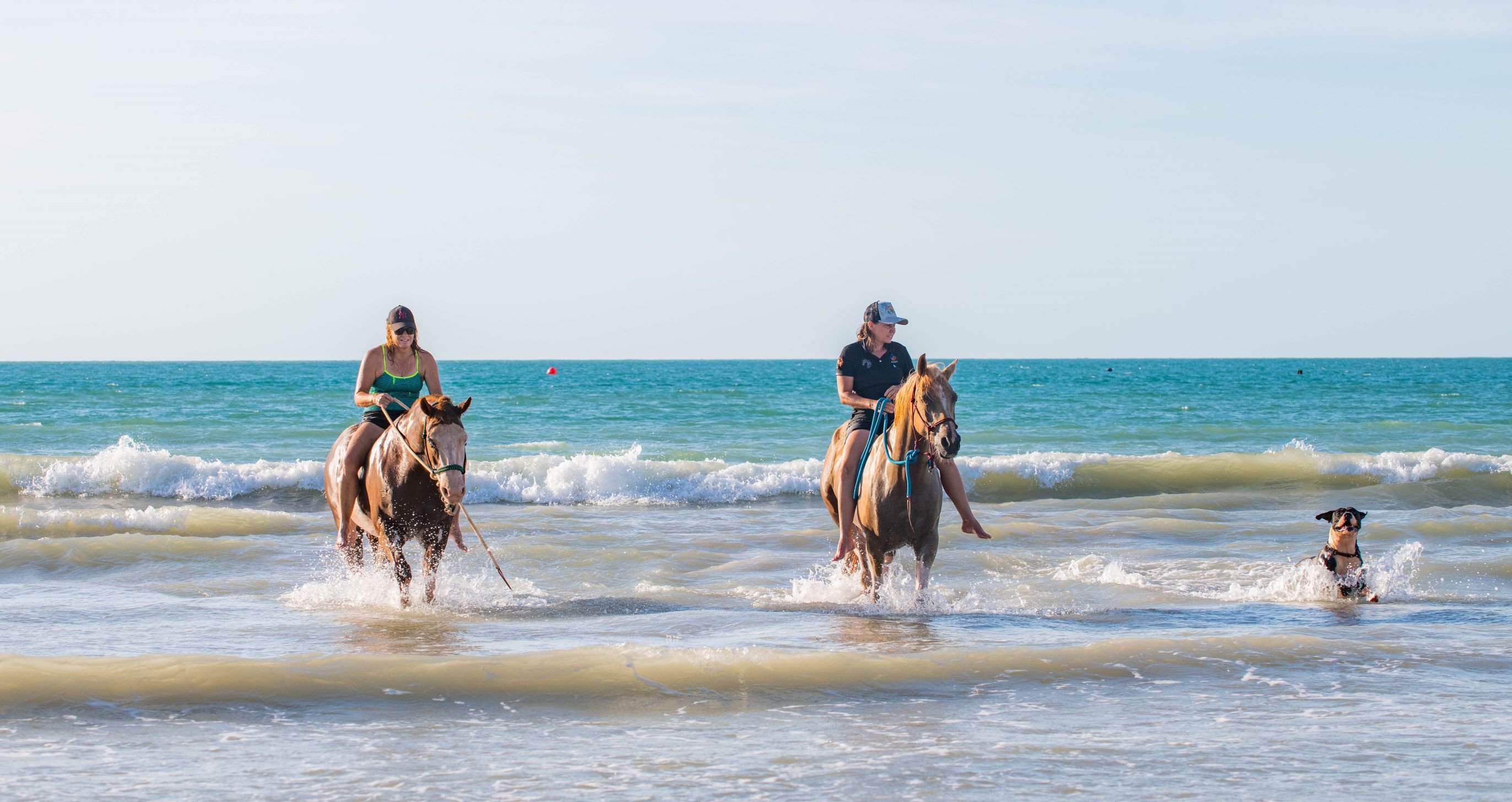 L-R: Romeo, Katie Pigram, Aggie Pigram, Abby-Rose Cox, Awesome, Professor Juli Coffin, Sandi Matsomoto and Oak Bill the dog
L-R: Romeo, Katie Pigram, Aggie Pigram, Abby-Rose Cox, Awesome, Professor Juli Coffin, Sandi Matsomoto and Oak Bill the dog
The Yawardani Jan-ga Equine-Assisted Learning (EAL) research project, headed by Professor Juli Coffin in WA’s Kimberley region, is steadily growing its capacity to support the social, emotional and spiritual wellbeing of Aboriginal young people through the powerful medium of horses. Eight local Aboriginal practitioners are now qualified to facilitate sessions working with horses and Aboriginal young people aged 6-25 – and there are more to come.
Accustomed all her life to the calm, affirming presence of horses, Professor Juli Coffin had to remind herself when she set out to train her first group of EAL protégés last year that 600kg of animal can appear a little scary to the inexperienced.
So it was, in the beginning, for several of the six women and two men – all from Derby and Broome – who turned up at Professor Coffin’s Broome property as the inaugural cohort in a program designed to create a new generation of Aboriginal EAL practitioners.
Once qualified, the practitioners were to join Professor Coffin’s trailblazing Yawardani Jan-ga Equine-Assisted Learning project, which connects young Aboriginal people with horses – facilitated by a practitioner – as a powerful way of supporting them socially, emotionally and spiritually.

Like many of the young participants who first encounter the program, some of the prospective practitioners had had little prior exposure to horses.
“I’ve got some classic pictures of that first time the prospective practitioners came and some wouldn’t even go in the yard – standing outside, all closed off,” Professor Coffin remembered. “It’s just about lack of exposure and experience. Some people take to it quickly and learn really easily, while others need a bit more support.”
Professor Coffin watched on with joy as, with regular exposure and support, the trainee practitioners who had been the most tentative grew more confident and began to open up – a process which mirrors the experience of so many of the young people Yawardani Jan-ga is designed to support.
“When you’re supporting someone through that process it’s really about that personal growth, and it’s amazing to watch and be part of – I love it,” Professor Coffin said.

“The fact these community members have been through the process to become qualified practitioners, now when they get young people like that they’re really able to step them through the process that they themselves have experienced. It makes it pretty relatable.”
After 150 hours of training, plus additional supervision and assessment, all eight of the trainees qualified as EAL practitioners last year, receiving a Certificate of Equine Assisted Learning (equivalent to a Cert IV) at a graduation ceremony in February this year. They are now working directly with Aboriginal young people and receiving ongoing training, supervision, and professional development.
Their graduation was, Professor Coffin hopes, the first in a long line of successful practitioner cohorts. Having worked with community leadership groups, youth groups and Aboriginal Elders to identify suitable local candidates for that first group, she now has a waitlist of aspiring practitioners she plans to take on as the EAL program expands. In August 2020 she will facilitate the training of a second group in Broome.
The ultimate goal is to have Yawardani Jan-ga operating in multiple sites across the state – simultaneously supporting young people and communities, and building Aboriginal workforce capacity.
“I’d like to see maybe five really established sites in WA, in the Aboriginal communities that are ready to have them or really want them,” Professor Coffin said. “It would be great to have an alternative service for young Aboriginal people in that social and emotional wellbeing support-type space.
“We also want to ensure the delivery of Yawardani Jan-ga remains culturally secure and Aboriginal-led. It’s about empowerment and engagement for our communities and our local workforce – we really want to build that up.”

